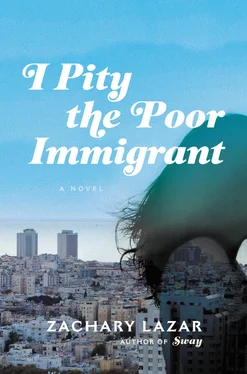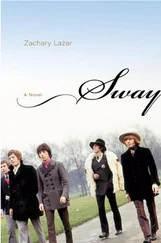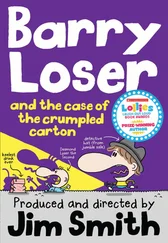I looked at Voss, whose face was blank. Eliav began a roll call of Jewish terrorists, starting with Yigal Amir, the fanatic who had murdered the prime minister, Yitzhak Rabin. He mentioned Baruch Goldstein, the right-wing zealot who had killed twenty-nine praying Muslims in a mosque in the Cave of the Patriarchs. He mentioned a left-leaning political scientist and professor named Zeev Sternhell who had been injured the year before by a pipe bomb delivered to his home. (In the months since my return from Israel, an American-born Jewish terrorist named Yaakov Teitel was arrested for this incident, as well as a string of attacks against “Arab, gay, and leftist targets.”)
“The last time I spoke to my father was about three days before the murder,” Eliav said. “It was sometime in the afternoon. He was cooking at home, then going to a bar he liked, probably on Lilienblum Street.”
He said that two or three times a month his father would take a woman to a restaurant or a bar in his neighborhood or farther north, on Rothschild Boulevard or Lilienblum Street, meeting these women either at the university where he taught or on a website on which Bellen made no effort to conceal anything about himself. Eliav said he thought the women might even have had something do with inciting the murder. He speculated that there was usually an element of sexual frustration in terrorism—“didn’t I think so?” Terrorism was sexual frustration blown up to a messianic scale. It was a puritanical impulse. To a person like this, Eliav said, maybe nothing could be uglier than a sixty-five-year-old man having a drink in a bar with an attractive young woman.
Voss was staring down at his knee toward the end of this. He seemed impatient to say something, but was restraining himself.
“He had habits, he was known in places, he wasn’t secretive,” I said. “Easy for someone to know where he’d be.”
Eliav raised his eyebrow and sighed. “Tel Aviv is sleazy, it’s modern, it’s not picturesque like Jerusalem,” he said. “But it’s secular. You should spend more time in Tel Aviv. If there’s a future for Israel, it’s Tel Aviv, not Jerusalem.”
“And do you think your father thought that?”
“No, my father would say that’s wistful. My father thought everything was doomed.”
“And you? Why did you leave Tel Aviv? Why did you come to Tsfat?”
He looked at the paintings on the walls and extended his hands. “I’m just a peddler,” he said. “I’m not peddler enough for Tel Aviv.”
Whether or not Eliav had fully given up drugs, I couldn’t know. Like Tsfat itself, I found him oppressive. When I asked him about the paintings, he went on to tell me that he believed in God — though the God he believed in was a figure of fear. In God’s eyes, he said, we were always a disappointment. We were disappointing because He had made us in His own image. He said that when intelligent people scoffed at the idea of God they were really only scoffing at a harmless cliché. Voss had gone outside for a cigarette. I could see his arm and the sole of his shoe, which he rested, his knee bent, on the edge of the open doorframe. The last thing Eliav told me was about an appearance his father had made on the campus of the University of Michigan when Eliav was a student there. At the back of the audience, there was a young man who started making strange sexual noises as soon as Bellen began his reading. The noises started out as a low hum or whine, then grew louder and louder until a few people turned around to locate their source. Suddenly, chairs were scattered at the back of the hall. A scrum of men stood above the boy, who was struggling on the floor, barking and screaming. It took eight people to subdue him, though he was only a bookish nineteen-year-old. In the midst of a psychotic break, the boy bit their hands, scratched their faces, kicked out in powerful bursts using both legs at the same time. Bellen had seen the boy at a tea beforehand, and, noticing his peculiar affect, he’d told Eliav that he had a feeling that something would go wrong once he began his reading.
“What I’m saying,” Eliav went on, “is that my father identified the boy as a kind of fanatic just by looking at him. He was a magnet for that kind of thing.”
“Even in America,” I said.
“My father was attuned to the violence inside people.”
13) THE CYCLE
The child David conceives with Bathsheba dies. As he’s mourning the loss, one of his sons, Amnon, seduces and rapes one of David’s daughters, Tamar. “And Amnon hated her with a very great hatred, for greater was the hatred with which he hated her than the love with which he loved her.” Amnon sends Tamar away and she “put ashes on her head, and the ornamented tunic that she had on she tore, and she put her hand on her head and walked away screaming.” David does nothing about this violation. It’s as if he recognizes his own sin against Uriah in his son Amnon’s sin. It is left to another of his sons, Absalom, to avenge Tamar. “And there was no man so highly praised for beauty as Absalom in all Israel — from the sole of his foot to the crown of his head, there was no blemish in him.”
Before long, the beautiful Absalom will be leading a popular uprising against his father, who no longer looks like the boy with the slingshot but more like the monster Goliath.
14) LILIENBLUM ST.
I saw a little of Tel Aviv over the next few days. I was alone, because Voss had to work in Jerusalem. He had barely been able to contain his loathing for Eliav Bellen, and when I asked him why, he told me that practically everything Eliav had said during the interview was a lie. He said that he’d interviewed a few of David Bellen’s friends — Bellen did not have many, Voss said — and by all accounts the poet was something of a recluse. It had been years since he’d made a habit of going for a drink on Rothschild Boulevard or Lilienblum Street. He was more likely to stay in his apartment, where he hoarded newspapers, books, records, and DVDs. His decades-long work with a peace group that had brought together Jewish and Arab writers was over. The Arab writers had left the group in protest of the Gaza blockade. Eliav was a junkie, a thief, a heartbreak — they had been more or less estranged ever since his son’s late twenties. If they’d patched things up in recent years, none of Bellen’s friends had heard of it.
Heavy curtains blacked out the sun. We were in Caesarea after seeing Eliav, at the branch of the Dan Hotel there, a few hours’ drive from Tsfat. When I came back out of the shower, Voss was watching the news in bed, the sheet pulled up to his waist. There was a fight at the Knesset — he hardly looked at me. I sat reading in the lobby that night. It could have been 1972. There were ashtrays by the elevator with clean white gravel inside, an abandoned bar in gloomy shadow, a bright foyer leading to an empty health club and pool.
In Tel Aviv, I thought about Voss more than I wanted to. He was my guide and my interpreter, and I was waiting for him. On my second day, I went down to the hotel lobby to check my e-mail and again there was nothing from him. He had not left any messages at the front desk. I did a search on “Oded Voss.” I brought up images of his face and I clicked through some of his articles. I looked up “oded voss first lebanon war” and retrieved an article called “Ten Years After, IDF Veterans Remember” in which he was quoted: “We kept living. We even started to enjoy ourselves. I used to wonder, was it the same as forgiving myself? Now I wonder if it matters. I think, to whom could it matter?”
I didn’t call or e-mail him. In my hotel room, I looked down at the sunbathers and watched generic VH1-style Israeli pop. Tel Aviv was New York, Miami, anywhere. It made me nostalgic for Jerusalem and its impassioned historical people who wanted to kill each other.
Читать дальше












